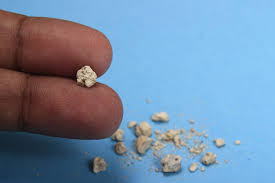
A Holistic Approach to Preventing Kidney Stones
Kidney stones, those hard mineral deposits that form in the kidneys, are a common and often painful condition affecting many people. While certain factors, such as genetics or medical history, can predispose individuals to developing these stones, there are several proactive steps one can take to significantly reduce the risk and maintain better kidney health.
One of the most important measures to prevent kidney stones is staying hydrated. Drinking enough water throughout the day helps dilute the concentration of substances like calcium, oxalate, and uric acid in the urine, which are known contributors to stone formation. For most people, consuming 8–10 glasses of water daily is sufficient, though this amount may need to be adjusted based on factors such as activity level, climate, and individual needs.
Diet also plays a vital role in preventing kidney stones. While calcium in supplements may sometimes increase the risk of stones, calcium obtained from dietary sources like milk, yogurt, and cheese can actually help prevent stones by binding to oxalates in the gut and reducing their absorption. On the other hand, foods high in oxalates, such as spinach, beets, nuts, and chocolate, should be consumed in moderation, especially by those who are prone to stones. Pairing these foods with calcium-rich meals can help minimize their stone-forming potential.
Sodium intake is another critical factor. High-sodium diets can lead to increased calcium levels in the urine, raising the likelihood of stone formation. Reducing salt in meals, avoiding processed foods, and choosing fresh, whole foods can help mitigate this risk. In addition to controlling sodium, moderating animal protein consumption is also beneficial. Foods like red meat, poultry, and fish can elevate uric acid levels in the body, increasing the chances of developing uric acid stones. A diet rich in fruits, vegetables, and whole grains not only supports kidney health but also provides essential nutrients and compounds like citrate, which actively help prevent stone formation.
Maintaining a healthy weight is another effective strategy to reduce the risk of kidney stones. Obesity is a known risk factor, and losing excess weight through regular exercise and a balanced diet can help. However, it's important to avoid extreme weight-loss methods or high-protein diets, as these can inadvertently increase the risk of stones.
Beyond lifestyle adjustments, avoiding sugary drinks like sodas and limiting caffeine intake can also protect kidney health. These beverages can contribute to dehydration or create conditions favorable for stone formation. Opting for water, herbal teas, or naturally flavored beverages is a smarter choice.
For those with a history of kidney stones or other risk factors, regular medical check-ups are essential. A healthcare provider can offer tailored advice, recommend dietary changes, or prescribe medications to lower the chances of recurrence. Recognizing the early signs of kidney stones, such as persistent pain in the back or abdomen, blood in the urine, or difficulty urinating, is crucial to seeking timely medical intervention.
Preventing kidney stones is not just about avoiding pain; it’s about fostering a lifestyle that promotes overall kidney health and well-being. Small, consistent changes in hydration, diet, and activity levels can have a profound impact. By taking these steps, individuals can protect themselves from the discomfort of kidney stones and enjoy better health for years to come.